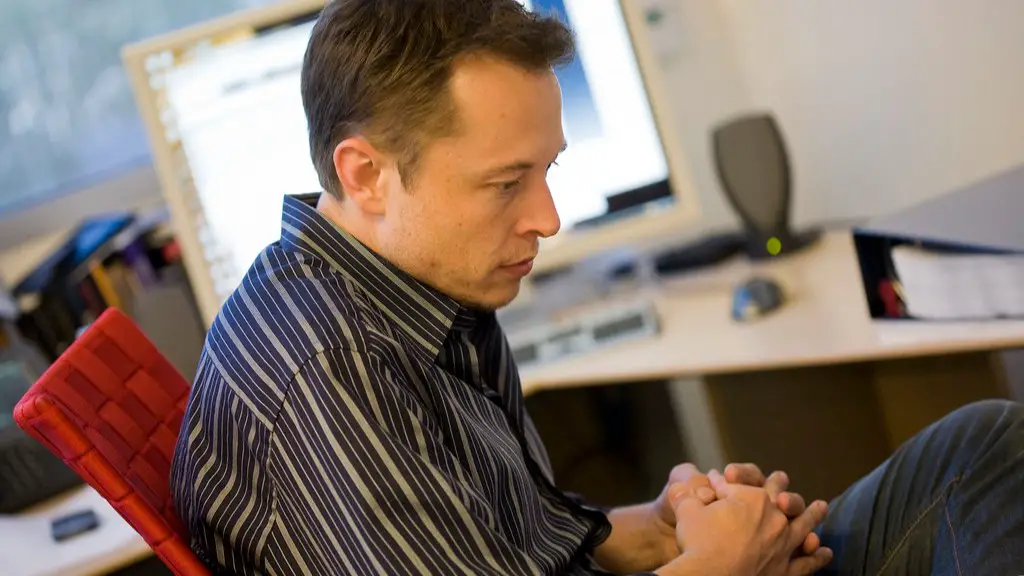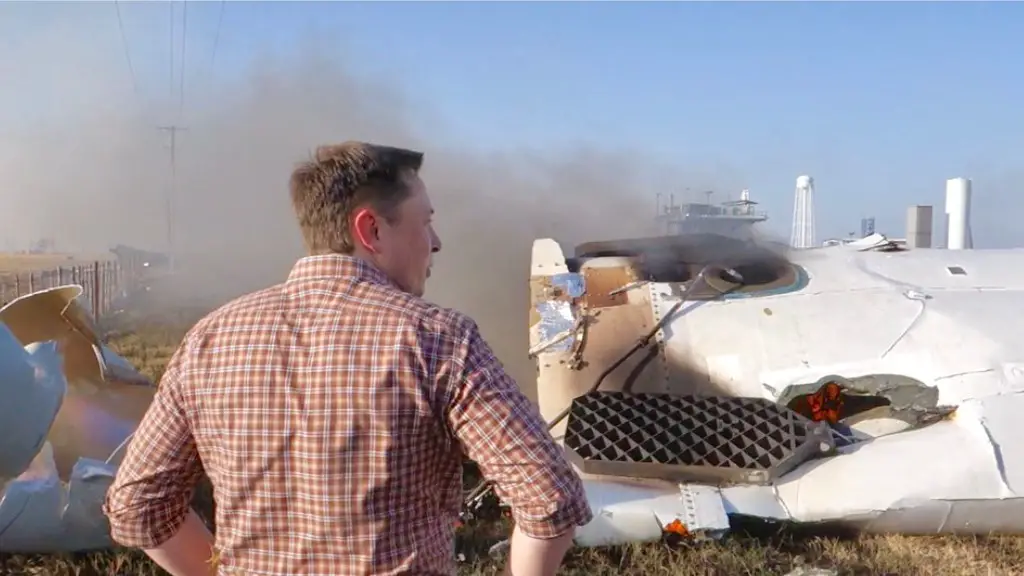What Elon Musk Said:
Elon Musk is one of the world’s leading innovators in the technology industry, and with his recent TED Talk he made several notable statements that resonated with his audience and beyond. While many of his previous remarks have caused a stir, this talk provided insight into his views on the future of technology and its impact on society.
During the talk, Musk theorized on the implications of autonomous technology and the rise of artificial intelligence (AI). He argued that future generations will be entirely reliant upon machines and robots. The use of AI could potentially lead to drastic leaps in innovation, productivity, and efficiency. At the same time, however, this could drastically reduce the need for humans to do certain jobs.
Musk also addressed the importance of trying to shape the future of AI in a responsible manner, so that its effects on society are beneficial, as opposed to catastrophic. This is especially important, given that AI could be used to manipulate users in an unethical way. Musk believes we should create a strong “immune system” to prevent this from happening.
The talk went on to focus on the importance of space exploration, both for knowledge and expansion. Musk noted that between advancements in AI, nanotechnology, and the Internet, the potential of outer space exploration could be huge in the very near future. He stressed that this should not just be seen as an adventure, but as an exploration of new potentials — and it should also be done responsibly.
Finally, Musk spoke about the need for governments to embrace technological innovations as they are developed, as well as the need to develop a plan for the long-term future in order to ensure humanity’s ethical progress. He concluded that the progress of these dilemmas depends on the level of collective consciousness and the degree of public support.
Moral Implications of Automation and AI
Elon Musk’s discussion of the implications of automation and AI highlighted the moral implications of advancing technology. Among these moral questions was the idea that automation and AI could render large sectors of society obsolete, and what implications could this have for the global economy?
From a moral perspective, automation and AI represent a revolution in human productivity, and this has the potential to disrupt the global economy. As such, much thought must be given to the ethical implications of this revolution, and how the potential benefits can be realized without the pitfalls.
In addition, there is the issue of the potential loss of human connection and experience, as machines and robots begin to supplant human labour in certain fields. This disruption could also have serious consequences on society as some people no longer have jobs, which could lead to societal unrest and a further divide between the “haves” and “have-nots”.
In light of these ethical considerations, it is important for governing bodies to consider the consequences of automation and AI in order to mitigate the risks. This could mean creating safeguards or regulations that ensure that any technology used is beneficial and safe for society as a whole, rather than leading to economic collapse or other forms of distress.
The Potential of Space Exploration
Elon Musk’s discussion of the potential of space exploration sheds light on the possibilities that await us when it comes to this exciting advancement. One key point highlighted was the idea that space exploration should not be seen as an adventure, but rather as a form of exploration with serious potentials.
The potentials of space exploration are both exciting and serious; it could lead to an increase in our knowledge of the universe, untapped sources of energy, and new materials and resources that could help humanity in many ways.
At the same time, it could uncover things that may have serious consequences. Advances in technology mean we could discover information about ourselves and the universe that could have implications for our societies, such as undiscovered forms of environmental damage or the development of new weapons technology.
In either case, it is clear that space exploration is worth pursuing, but it must also be done in a responsible and ethical manner that takes into account the potential risks.
The Need for Long-Term Thinking
Elon Musk’s discussion of the need for long-term thinking addresses an important concept in the face of technological advancements. As demonstrated by previous world events, it is essential that government and industry leaders think ahead and come up with plans to ensure humanity’s ethical progress.
Given the rapid pace of technological change, it is clear that the future cannot be accurately predicted. As such, it is essential that leaders think creatively and come up with a plan for the long-term. This could involve initiatives to help ensure a prosperous and equitable economy, or efforts to ensure that technology and other advances are used in a responsible and ethical manner.
Failing to plan for the long-term could lead to unforeseen economic, environmental and social disruptions that could have dramatic and far-reaching impacts. Therefore, taking the long-term into consideration is an important step in ensuring the ethical progress of humanity.
The Role of the Public
Elon Musk’s discussion of the role of the public in technological progress raises a crucial point. Namely, that advances in technology require the public to understand and embrace new concepts and innovations in order to be successful.
For technology to make a positive impact, it is essential that the public understands it, as well as the potential risks. This could involve providing education and training sessions to ensure everyone is up-to-date on the latest technologies, as well as engaging the public in decisions and policies that involve technology.
At the same time, it is also important to ensure that the public remains informed and up-to-date on new developments, and that they are aware of their rights and the potential risks associated with these changes.
Ultimately, the success of any technology depends upon public awareness, understanding, and support. Therefore, it is essential that governments and organizations consider the public’s role in the development and implementation of technology in order to ensure success.
Government Regulation and Oversight
One of the key implications of Elon Musk’s discussion of government regulation and oversight of technology is the importance of ensuring new technologies are beneficial and safe for society as a whole. This means that governments must invest in both the research and development of potentially disruptive technology, as well as in protecting citizens from potential harms associated with it.
In order to ensure this, governments must regulate and oversee the development and implementation of technology to ensure that it is advancing in a safe and ethical manner. This could involve putting in place strong regulations and enforcement measures to ensure the safeguards are followed.
At the same time, governments must also ensure that the public is aware of their rights, and what is being done to protect them from potential harms associated with technology. This could involve educating the public about the importance of consumer choice and control, as well as providing information about potential risks and how to safeguard against them.
Incentives and Rewards
Development and adoption of new technologies could potentially be driven by incentives and rewards. This could involve introducing incentive structures to reward the development and adoption of technologies that are beneficial and safe for society.
In addition, offering rewards and incentives could help to spur innovation and reward companies who are working hard to develop and implement ethical technology. This could be in the form of tax write-offs, grants, or other forms of support to encourage innovation and responsible practices.
Finally, it is important to consider how rewards and incentives could be used to encourage responsible and ethical behaviour. This could involve introducing rewards and incentives that target specific ethical practices or reward the development of products and technologies that are safe and beneficial for society.
Conclusion
Elon Musk’s TED Talk provided insight into his views on the future of technology and its implications for society. He highlighted the need for governments to consider the ethical implications of technology and to establish regulations and oversight measures to ensure it is used responsibly and ethically.
He also spoke about the need for the public to understand and support new technologies, as well as the potential benefits of space exploration and the need for long-term thinking.
Finally, Musk discussed the potential of incentives and rewards to drive development and adoption of technologies that are beneficial and safe, while promoting the implementation of responsible and ethical practices.


